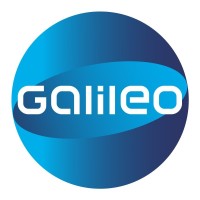
Travel Website Develpment
Travel software development refers to the process of
creating software applications and solutions specifically designed for the
travel industry. It involves the development of various types of software,
including booking systems, travel management platforms, itinerary planners,
travel agency software, online travel portals, and mobile applications for
travellers.
Here are some key aspects and considerations in travel
software development:
1.
**Online Booking Systems: ** Developing robust and user-friendly online
booking systems that allow users to search, book, and manage their travel
arrangements, including flights, accommodations, car rentals, and activities.
2.
**Integration with APIs: ** Integrating with various APIs (Application
Programming Interfaces) provided by airlines, hotels, car rental companies, and
other travel service providers to fetch real-time data, availability, and
prices.
3.
**Payment Gateways: ** Implementing secure payment gateways to
facilitate online payments and ensure customer data protection.
4.
**Travel Content Management: ** Building content management systems to
manage and update travel-related content, including destination information,
hotel details, images, and customer reviews.
5. **CRM
(Customer Relationship Management) Systems: ** Developing CRM systems to
manage customer interactions, profiles, bookings, and personalized marketing
campaigns.
6.
**Mobile Applications: ** Creating mobile applications for travellers
that provide features such as itinerary management, real-time updates, push
notifications, and location-based services.
7.
**Analytics and Reporting: ** Implementing analytics and reporting
modules to track and analyse user behaviour, booking patterns, sales
performance, and other key metrics.
8.
**Security and Data Privacy: ** Ensuring the security of customer data,
implementing data encryption, adhering to industry standards and regulations,
and protecting against potential cyber threats.
9. **User
Experience (UX) and User Interface (UI) Design: ** Designing intuitive
and visually appealing interfaces to enhance the user experience, simplify the
booking process, and increase customer satisfaction.
10.
**Integration with External Systems: ** Integrating with external
systems such as global distribution systems (GDS), third-party inventory
providers, and travel aggregators to expand the range of available travel
options.
When developing travel software, it's crucial to consider
scalability, performance, reliability, and the ability to handle peak loads
during high-demand periods. Additionally, staying up-to-date with the latest
trends in technology, such as artificial intelligence, machine learning,
chatbots, and blockchain, can provide opportunities to enhance the travel
experience and streamline operations.
Overall, travel software development requires a deep
understanding of the travel industry, effective collaboration with industry
partners, and a focus on delivering solutions that meet the needs of both
travel businesses and end users.






















